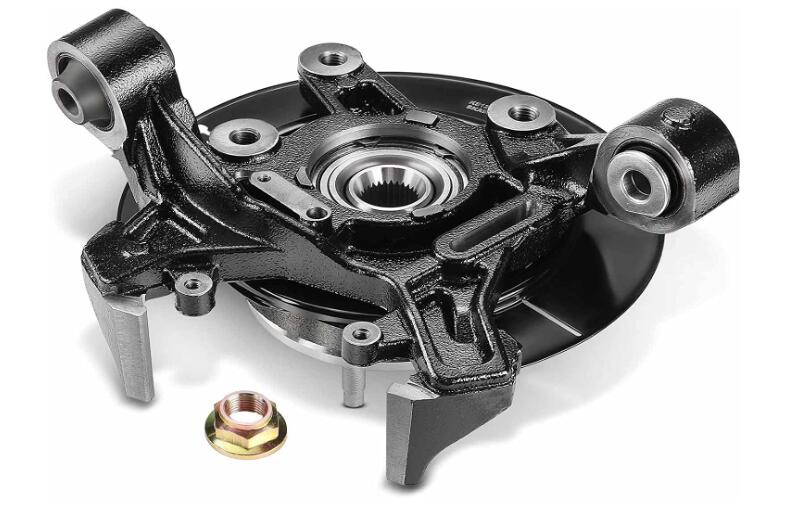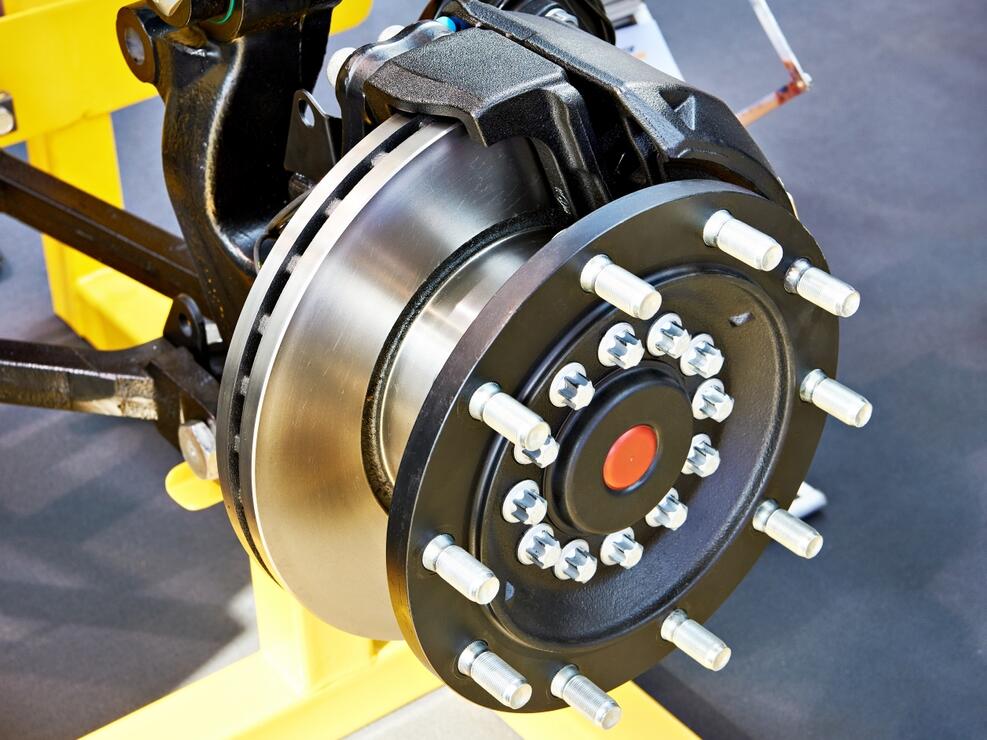Introduction
Wheel hub assemblies are critical components of a vehicle’s wheel system, ensuring smooth wheel rotation and supporting the vehicle’s weight.
When it comes to replacing these assemblies, buyers often choose between original equipment manufacturer (OEM) parts and aftermarket alternatives.
This article will explore the pros and cons of aftermarket wheel hub assemblies, providing valuable information to help buyers make an informed decision.
What Are Aftermarket Wheel Hub Assemblies?
Aftermarket wheel hub assemblies are replacement parts produced by companies other than the original vehicle manufacturer.
These parts are designed to meet or exceed OEM specifications and are typically sold at a lower price.
Aftermarket manufacturers range from small, specialized companies to large-scale corporations, offering various options for buyers regarding quality, price, and availability.
The Pros of Aftermarket Wheel Hub Assemblies
There are several advantages to choosing aftermarket wheel hub assemblies, including:
Cost-Effectiveness:
One of the primary benefits of aftermarket wheel hub assemblies is their lower price point compared to OEM parts.
Since aftermarket manufacturers don’t have to factor in vehicle development and marketing costs, they can often offer more competitive prices.
These cost savings can be particularly beneficial for buyers on a tight budget or those looking to save on routine maintenance and repairs.
Availability:
Aftermarket wheel hub assemblies are generally more readily available than their OEM counterparts.
With a wider range of manufacturers and distributors, buyers can often find the parts they need more quickly and conveniently.
This increased availability is particularly helpful when dealing with older vehicles or models no longer in production, as OEM parts can be more challenging to source.
Variety:
The aftermarket industry offers a diverse range of options when it comes to wheel hub assemblies.
Buyers can choose from various manufacturers, materials, and designs, allowing them to find the perfect fit for their specific needs and preferences.
This variety also enables buyers to select parts with enhanced performance or features compared to OEM components.
Innovation:
Some aftermarket manufacturers are known for their focus on innovation and performance enhancement.
These companies often develop cutting-edge products that improve vehicle handling, durability, or efficiency, allowing buyers to upgrade their vehicle’s performance with aftermarket wheel hub assemblies.
The Cons of Aftermarket Wheel Hub Assemblies
Despite the potential advantages, there are also some drawbacks to consider when choosing aftermarket wheel hub assemblies:
Quality Concerns:
One of the primary concerns when selecting aftermarket wheel hub assemblies is the potential for variability in quality.
While many aftermarket manufacturers produce high-quality, reliable parts, others may need to be more careful or use inferior materials to reduce costs.
This inconsistency in quality can make it challenging for buyers to determine the best option for their needs.
Warranty and Support:
Aftermarket wheel hub assemblies may have different warranty coverage or customer support than OEM parts.
While some aftermarket manufacturers offer robust warranties, others may provide limited coverage or require buyers to work through third-party distributors for support.
Additionally, using aftermarket parts may void existing warranties on a vehicle, so it’s essential to understand the specific terms and conditions of your vehicle’s warranty before deciding.
Fitment and Compatibility:
While aftermarket wheel hub assemblies are designed to meet or exceed OEM specifications, there can sometimes be issues with fitment or compatibility.
In some cases, aftermarket parts may require modification or adjustment to fit properly, which can be a hassle for buyers and potentially lead to additional costs or delays.
Making an Informed Decision: What Buyers Should Know
When weighing the pros and cons of aftermarket wheel hub assemblies, buyers should consider the following factors to make an informed decision:
Reputation and Reviews:
One of the most effective ways to gauge the quality of aftermarket wheel hub assemblies is to research the manufacturer’s reputation and read reviews from other buyers.
Look for manufacturers with a proven track record of producing high-quality, reliable parts, and pay attention to feedback from customers with experience with the product you’re considering.
Warranty and Support:
Before purchasing aftermarket wheel hub assemblies, investigate the warranty coverage and customer support provided by the manufacturer.
A robust warranty can provide peace of mind and protect your investment, while strong customer support can ensure you have access to assistance if any issues arise.
Fitment and Compatibility:
Always verify that the aftermarket wheel hub assembly you’re considering is compatible with your vehicle’s make, model, and year.
Consult your vehicle’s owner manual or consult with a professional mechanic to ensure proper fitment and compatibility.
Price vs. Quality:
While cost savings can be an attractive feature of aftermarket wheel hub assemblies, it’s essential not to sacrifice quality for a lower price.
Consider the potential long-term costs of using an inferior product, such as the need for more frequent replacements or potential damage to other vehicle components.
Balancing cost-effectiveness with quality and reliability is crucial for making a wise investment.
Expert Advice on Aftermarket Wheel Hub Assemblies
When considering aftermarket wheel hub assemblies, seeking expert advice from automotive professionals is always beneficial.
Mechanics and industry specialists can offer valuable insights into the quality and performance of various aftermarket products, helping you make a more informed decision.
Consult with Your Mechanic:
Your mechanic can provide recommendations based on experience with various aftermarket wheel hub assembly brands and products.
They can also help you determine if a particular assembly is compatible with your vehicle and if there are any potential risks associated with its installation.
Industry Publications and Resources:
Automotive trade publications, websites, and forums often feature articles and discussions on the pros and cons of different aftermarket parts, including wheel hub assemblies.
Reviewing these resources lets you gain valuable insights from industry professionals and other vehicle owners.
Online Communities and Forums:
Online automotive forums and communities can be a great resource for obtaining first-hand opinions and experiences from vehicle owners using aftermarket wheel hub assemblies.
By engaging in these communities, you can ask questions, gather information, and make more informed decisions based on the experiences of others who have faced similar choices.
Quality Control and Testing of Aftermarket Wheel Hub Assemblies
When considering aftermarket wheel hub assemblies, it’s essential to understand manufacturers’ quality control measures and testing processes.
High-quality aftermarket products should undergo rigorous testing to ensure they meet or exceed their OEM counterparts’ performance and durability standards.
Material Quality:
The quality of materials used in manufacturing is a critical factor in determining the overall quality and performance of aftermarket wheel hub assemblies.
Look for manufacturers that source high-quality materials, such as premium-grade steel, to ensure the durability and longevity of their products.
Manufacturing Processes:
Advanced manufacturing techniques, such as precision machining and heat treatment, can significantly impact the performance and reliability of aftermarket wheel hub assemblies.
Look for manufacturers that invest in state-of-the-art equipment and processes to produce parts that meet or exceed OEM specifications.
Testing and Certification:
Manufacturers of high-quality aftermarket wheel hub assemblies should subject their products to rigorous testing procedures to verify their performance, durability, and safety.
These tests may include load and fatigue testing, impact resistance testing, and corrosion resistance testing, among others.
Additionally, manufacturers that comply with international quality standards, such as ISO certifications, are committed to producing high-quality, reliable products.
Environmental Considerations and Sustainability
Another important factor to consider when choosing between OEM and aftermarket wheel hub assemblies is the manufacturing process’s environmental impact and the manufacturer’s sustainability practices.
As businesses and consumers become increasingly concerned about the environment, consider how your purchasing decisions might contribute to sustainability efforts.
Manufacturing Emissions and Waste:
The production of wheel hub assemblies can generate emissions and waste materials, which can negatively impact the environment.
Look for manufacturers that employ eco-friendly production methods, such as reduced energy consumption, waste minimization, and recycling initiatives, to mitigate their environmental footprint.
Sustainable Materials:
Some manufacturers may incorporate recycled or sustainably sourced materials into their wheel hub assemblies to reduce environmental impact.
Choosing products made with sustainable materials can support responsible resource management and contribute to a more sustainable future for the automotive industry.
Green Certifications:
Manufacturers that adhere to eco-friendly standards and certifications, such as ISO 14001 (Environmental Management Systems) or the European Union’s Ecolabel, are committed to reducing their environmental impact and promoting sustainability.
By choosing products from these manufacturers, you can support businesses prioritizing environmental responsibility.
Conclusion
In summary, choosing the ideal wheel hub assembly necessitates a thorough evaluation of various aspects, such as quality, cost, availability, compatibility, and the manufacturer’s environmental and sustainability practices.
Conducting in-depth research on aftermarket manufacturers, seeking expert advice, assessing quality control procedures, and weighing your decision’s environmental and sustainability implications will enable you to make an informed choice that caters to your specific needs.
Ultimately, opting for high-quality, dependable, and eco-friendly wheel hub assemblies enhances your vehicle’s performance and durability and fosters a greener and more sustainable automotive industry.




